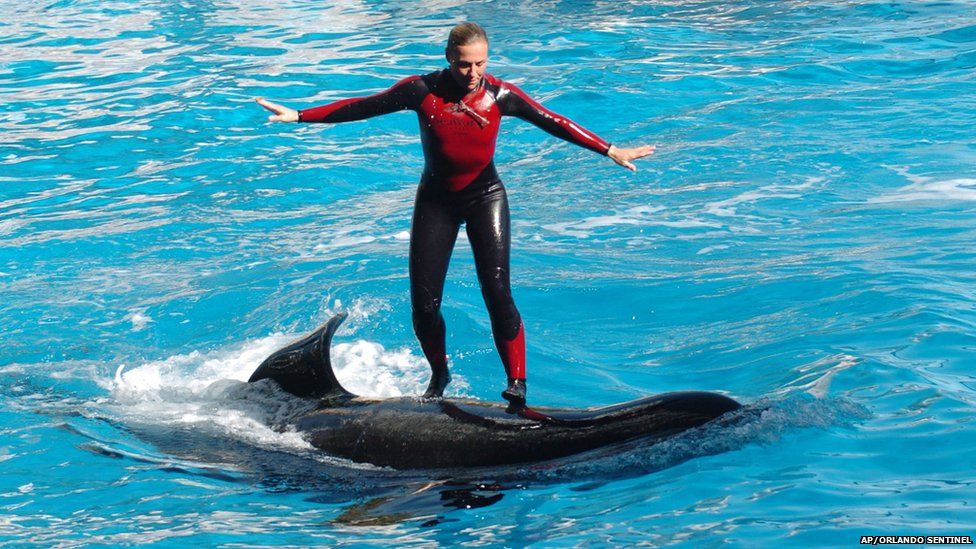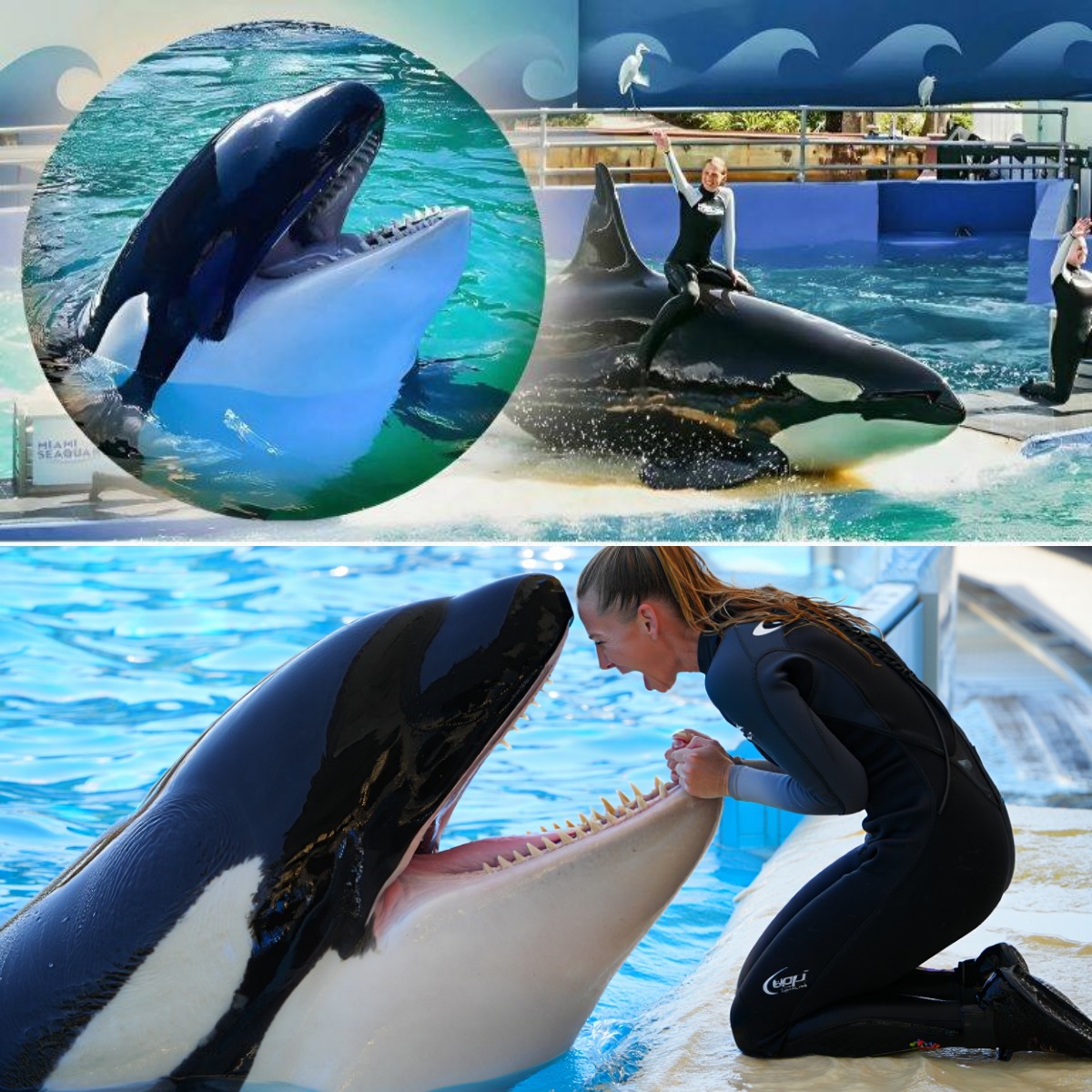Nightmare at Pacific Blue Aquarium: Jessica Radcliffe’s Final Show
At 4:05 p.m., under a clear sky and bright sunshine, Jessica entered the center stage with the confidence of someone who knew every inch of the venue. Dressed in her signature black and blue outfit, she greeted the audience with a wide smile. Amid applause and children’s laughter, she began narrating the routine: synchronized jumps, pirouettes, and games that seemed to demonstrate the special connection between her and Nalya.
The show proceeded smoothly. The orca responded to every signal with precision: she emerged from the water with force, splashing the front rows; she spun on her own axis; she even seemed to “pose” for the tourists’ cameras. Jessica interacted with her with fluid gestures and soft words, as if a secret language existed between them.

But at 4:21 p.m., something changed. Footage from the video that would later go viral shows Nalya breaking the established routine. Instead of waiting for the next command, the orca began swimming in rapid circles, thrashing the surface of the water with her tail. Jessica, still smiling, gestured to calm her.
In a matter of seconds, the scene turned unsettling. Nalya dived and reappeared right in front of the trainer, closer than usual. The audience, uncomprehending, continued to applaud. Jessica reached out, but at that moment the orca made a sudden movement and grabbed her by the leg.
There were no screams, and perhaps that was the most disturbing aspect. The dominant sound was that of the choppy water, as Jessica tried to remain calm. Some in the audience believed it was part of the spectacle; others, silently, began to sense that something was wrong.
In the next 30 seconds, Nalya dragged the coach into the water. The tension in the stands was palpable. Some children were asking aloud what was happening. Parents and visitors looked on in disbelief, hoping Jessica would emerge immediately as she had so many times. But she didn’t.
The aquarium’s security team reacted quickly, launching themselves into the water with special ropes and hooks. However, Nalya seemed completely unaware of any attempts to intervene. The animal remained below the surface, swimming with erratic movements.
When Jessica was finally recovered, nearly three minutes had passed. The staff placed her on the platform while a paramedic began resuscitation. The shocked audience was slowly evacuated, many of them not fully understanding the severity of what had happened.

Hours later, the management of Pacific Blue Aquarium issued an official statement confirming Jessica Radcliffe’s death. “She was a dedicated professional with over 20 years of experience. Her passion for animals and commitment to marine education were unparalleled. The entire aquarium family is in mourning,” the statement read.
Video of the incident, recorded by a Canadian tourist, began circulating on social media just hours later. Within 24 hours, it had racked up millions of views on platforms like X, TikTok, and YouTube. Comments ranged from grief over the loss of the trainer to debate over the ethics of keeping orcas in captivity.
Animal behavior experts pointed out that sudden changes in orcas’ behavior can be due to stress, illness, or environmental stimuli that alter their normal behavior. “No matter how well trained they are, they are still apex predators with very strong instincts. Captivity can intensify unpredictable behaviors,” said marine biologist Elena Suárez.
This is not the first serious incident involving orcas in aquatic shows. Similar cases in parks in the United States, Canada, and Spain have rekindled discussions about whether these animals should be kept in small enclosures. Animal rights activists seized the opportunity to demand an end to these shows, arguing that the risk to trainers and animals is unacceptable.
Meanwhile, the coastal city where the Pacific Blue Aquarium is located woke up covered in flowers and messages at the main entrance. Friends, former colleagues, and regular visitors left letters and photographs in tribute to Jessica.
In the silence following the tragedy, the final image remains etched: Jessica, standing on the platform, smiling and waving, seconds before everything changed forever. A picture frozen in the collective memory, now mixed with unanswered questions and a debate that will likely shape the future of this type of show.


